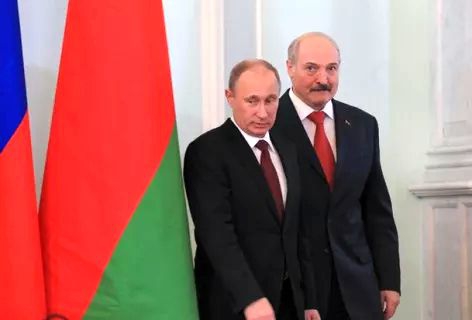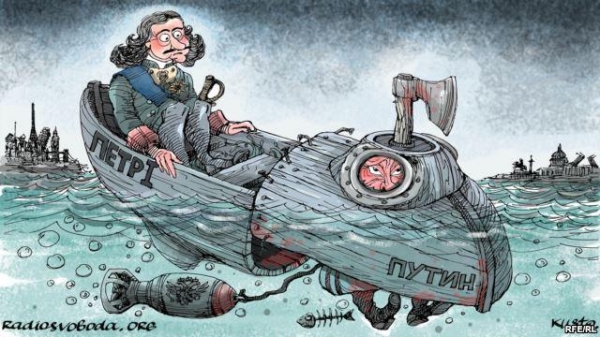According to a recent survey, 51 percent of young Serbs do not support integration with the EU. The reasons are many: from disappointment in the promises of politicians to nationalist sentiment.

Graffiti in Belgrade: “EU – never”
It is believed that the older generation is more conservative and nationalist-minded than the youth – especially in Serbia, where representatives participated in the Yugoslav wars of the 1990s years, or at least supported this policy. That’s why shock results of a survey of the Belgrade NGO “Institute of European studies, according to which Serbian young people negatively disposed towards the EU. According to him, 51 percent of Serbians aged 18 to 29 years would like to see their country, an official candidate for accession to the EU was interrupted by the integration process. Among the older generation, by contrast, two-thirds support integration with the European Union.
Other survey results were less surprising: 80 percent of the Serbian population opposes recognition of Kosovo’s independence, 82 percent against possible NATO membership. The best friend of his country most Serbs, according to the survey, believe that Russia, and the worst enemy – Croatia. But how did it happen that in Serbia the youth opposed to the EU? She may be more open to nationalist views? Or simply stronger than others, disappointed with unfulfilled promises of a future in the EU?
Corruption and nepotism
After 2000, the former President of Yugoslavia Slobodan Milosevic was overthrown in a popular uprising, all subsequent Serbian government acted, at least formally, for membership in the EU. When this was achieved very little: Serbia is still at the initial stage of difficult negotiations about EU membership, and the country is still rampant corruption and nepotism.

Protest in Belgrade against the agreement on normalization of relations with Kosovo, 2013
He who has no party ticket, there is little chance of a successful career. A difficult situation had a particularly severe impact on young people, among which 43 percent are unemployed – and this is only the official data, which many critics consider to be adorned. Meanwhile, in recent years there have been many weaknesses of the European Union, which has long seemed the Serbs Paradise. The country began to spread rumors about the collapse of the EU” and lead discussion on this topic.
“Ultimatums West and the promise of a “Golden era”
However, the weaknesses of the European Union is not for everyone are crucial. For example, Denis Oluic calls the other reasons for his scepticism towards Brussels. “We don’t need someone from the outside tells us what we should do in our own country,” says the 23-year-old student in an interview with DW. In his opinion, every country has the right on its territory to leave the final word for themselves, and the West puts too many “ultimatums” associated with EU membership. “I think the recognition of Kosovo as an independent state should be a condition for EU membership. Therefore, we need powerful allies like Russia and China. Otherwise we have no chance,” continues Oluic.

Denis Oluic and Suncica Milanovich
He was a young child, when my parents joined the stream of refugees from Croatia. In 1995 in this country as a result of operation of the Croatian army “Storm” the war ended, and from the Krajina, in the territory of Croatia, were expelled the Serbs living there, a large number of civilians of Serbian origin were killed. Oleic opposed to everything that is related to the West – recognition of Kosovo’s independence, joining the EU or NATO.
But not everyone who is skeptical towards Brussels, are guided by Patriotic views or friendly attitude towards Russia. The point is rather that the contemporary Serbian youth grew up in the promises of the various political elites that once Serbia joins the EU, there will come “Golden era”. But, as noted in an interview with DW 25-year-old actress Suncica Milanovic, “existing until now the integration process has been protracted and ineffective.” She doesn’t believe in cash flow of pan-European Treasury and notes that many EU countries still have unresolved issues. “If Serbia itself will conduct the necessary reforms, the EU do not need,” – said the actress.
“Blame the Internet and politics”
According to the Serbian political scientist Tibor Moldva, all three sources, from which the modern young people receive information, family, media and school in recent years have failed, with the blame he places on the Internet. Serbian young people, says Moldvay in an interview with DW, in particular, spreads in the Network messages of their peers, supporting right-wing sentiments, without delving into their contents.
The education system in the country, according to the analyst, is not conducive to the development of critical thinking, is still widespread cramming – for example, texts from history books, where the Serbian people are presented with a hero, and his crimes ignored.
In addition, according to Moldvay, politicians have not done enough to highlight the positive sides of the European Union. “We must be effort – after all, the longer the integration process, the stronger grows the skepticism,” – said the expert. He was in favour of membership of Serbia in the EU and believes that the need to better assist the Serbian society the benefits of such a step, instead of to argue on such trifles as, for example, the prohibition of Brussels to produce non-standard forms.








